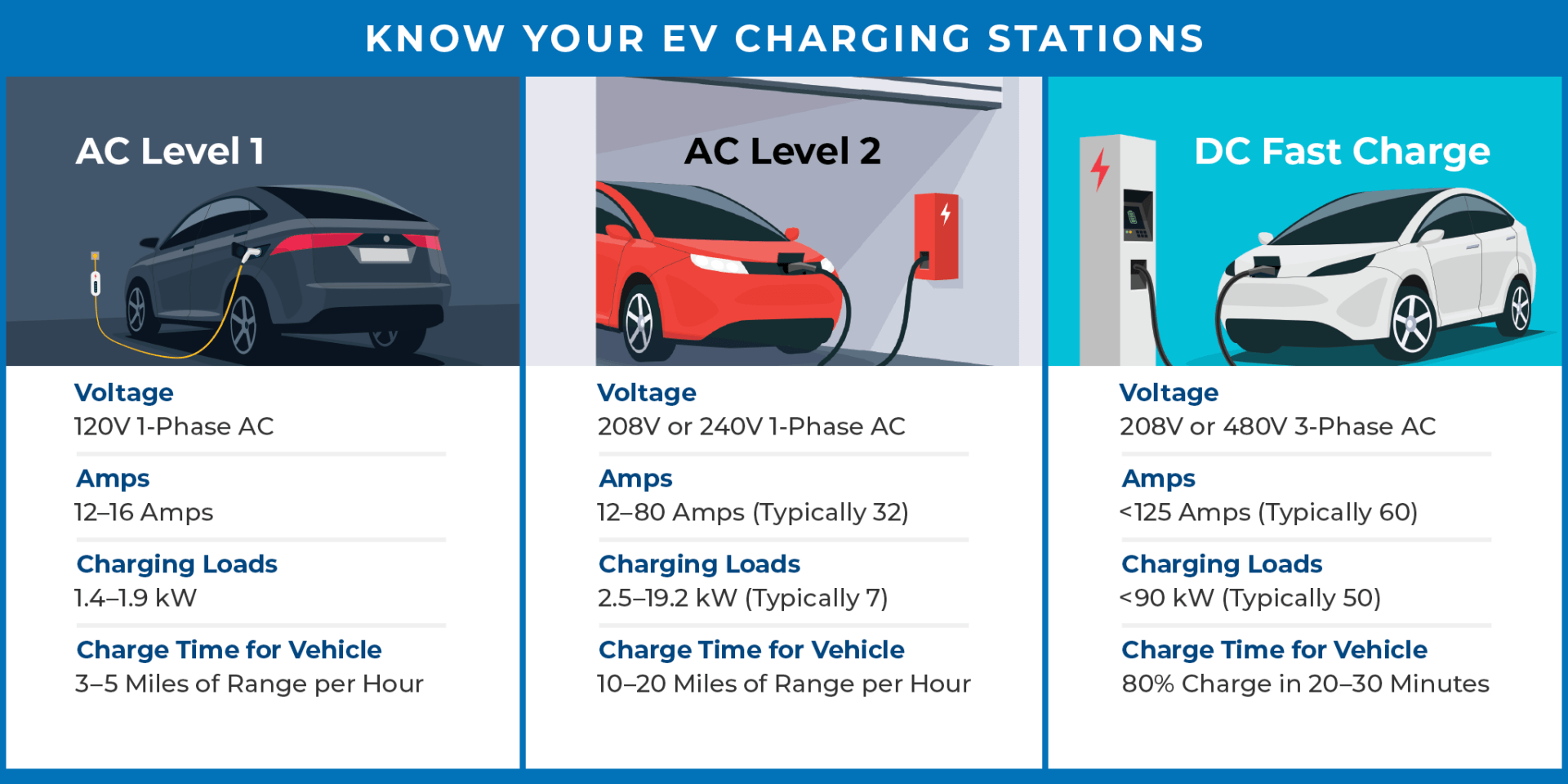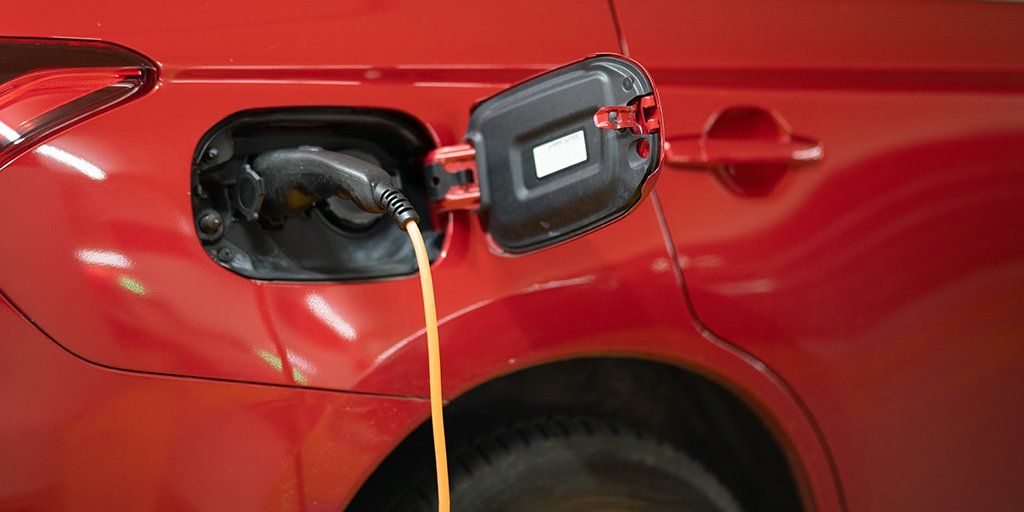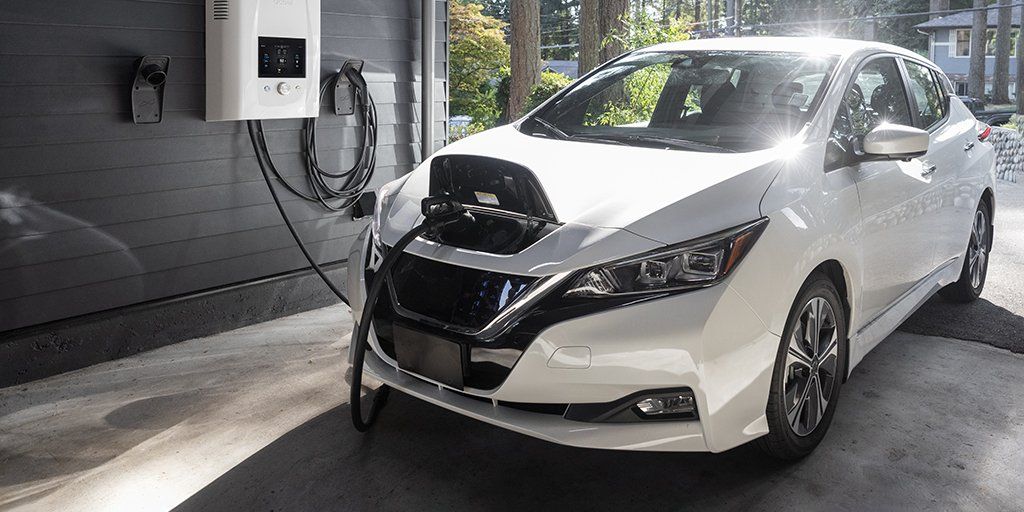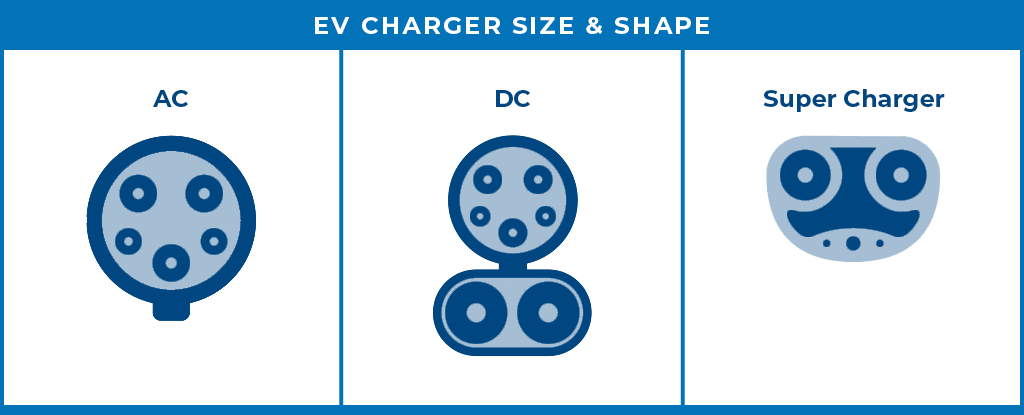Call or Text (216) 545-1776 to schedule service or installation
Blog | Financing | Specials | Now Hiring | Service Plans
Take Electric Vehicle Charging to the Next Level
EV Charging Station Considerations for Your Home
Electric vehicles are becoming more popular. Many people are looking to ditch their gasoline or diesel-powered cars in favor of greener alternatives. There are a variety of charging stations available to make charging easy. Whether you’re an electric vehicle (EV) owner or just looking to reduce your carbon footprint, there’s a charging station for you.
If you’re considering purchasing an EV, one of the most important considerations is how to charge your vehicle at home. Let’s explore the two types of home charging stations and their pros and cons.
What Is EV Charging?
It may seem obvious, but an EV needs a charging source. Here are the EV charging options available today:

Level 1 EV Charging
All EVs include a 110v compatible charging unit that can plug into any standard 110v household outlet. This unit is known as a Level 1 charger. The downside of Level 1 charging is that it’s slow. Level 1 provides five miles of travel per charging hour, so an eight-hour overnight charge enables about 40 miles of travel. While this may be fine for the daily needs of many drivers, it’s not efficient for longer-range travel or rapid charging.

Level 2 EV Charging
To maximize EV driving range and satisfaction, the best option is Level 2 charging. A Level 2 device charges at about twice the rate of Level 1, providing about 180 miles of travel for an eight-hour charge time. A 240v Level 2 wall-mounted charger is ideal for drivers with long commutes or who actively drive their EV.

Seven Tips for Choosing the Right Home EV Charger
One of the most important decisions you'll make when buying an EV is which home charging station to buy. When making your decision, there are a few things to consider, such as the type of connector your EV has and the charging standard.
If you’ve decided that a Level 2 device is right for your needs, your next decision is which one to purchase. With so many EV chargers on the market, it’s important to know what to look for. Here are a few factors to consider:
1. Hardwired vs. Plug-In
Many charging stations are stationary and hard-wired, while others plug into the wall for portability. However, all stations still need their own 240v circuit for Level 2 charging.
Cars.com says, “Unless you’re buying a Tesla, a Ford Mustang Mach-E or another model that comes with a combination Level 1/2 mobile charger that travels by car—or you want faster charging than those provide—you’ll need to buy one of your own that mounts to the wall or somewhere near where you park.”
2. Cable Length
If a Level 2 charger isn’t portable, it’s important to ensure it’s mounted where it can reach the EV’s charging port, so charging cable length should be considered. With the EV charging industry currently beginning to standardize at 25 feet, be sure to confirm that this is long enough for your needs.
3. Size and Shape
Many garages have little room for extra equipment. In these cases, a charger that is narrow and has a lower profile will help prevent it from interfering with other items around it.
EV chargers are becoming more and more universal, with charging standards and connectors being adopted by more and more automakers. This is good news for drivers of EVs, who will be able to use the same chargers no matter what make or model of vehicle they own.

That’s right! Very soon, no matter what kind of EV you own, compatibility will be seamless.
The most common charging standard is known as CHAdeMO. It also is one of the fastest EV charging options on the market. The connector for this standard is a large plug with a number of pins.
Other automakers, including Tesla and Chevrolet, have developed their own charging standards, but there are also adapters available that will allow drivers to use any type of charger.
The important thing for EV drivers to remember is that not all chargers are created equal. Some chargers provide a faster charge than others—like the CHAdeMO for instance—so it's important to research the right charging station for your needs and EV before you purchase your EV.
4. Special Features
Some Level 2 stations let you schedule charging when electricity is less expensive, like late at night or early in the morning. Other models can be set to resume charging automatically when the power comes back on should an outage occur. Some can be operated through a smartphone app.
5. Safety Certified
UL or ETL certification ensures that your Level 2 charger is designed and tested to be as safe as possible. This is one of the most important considerations for any home electrical equipment, along with an installation by a professional electrician.
6. Weatherproofing
If your Level 2 station will be installed by your driveway, look for a model that is rated for resistance to water, dust, snow, ice, and sun. NEMA and IP ratings can help determine what protection level is right for your needs. If you’re not comfortable making the decision, ask your electrician to recommend the option that’s right for your needs and budget.
7. Upgrade Your Electric Panel
Before you buy that Tesla, Leaf, or Rivian, factor in costs for an electrical service panel upgrade—unless you want to wait hours for your car to fully charge—if it ever does.
Next Level Power Needs Expert Installation
Once you’ve decided to purchase an EV and have some ideas about your Level 2 charging requirements, the next step is to work with a trained, licensed electrician to install your charger.
We asked Gorjanc’s electrical expert, Joe, what problem he sees the most for homeowners who buy electric vehicles:
Q. What are some of the more common issues you’re seeing with people and EV charging ports in their garage?
A. Homeowners discover they don’t have enough power for the EV charger! They already have a full use on a 100 amp panel with three intermediate appliances. A car charger will use as much power as a stove.
Do you need expert assistance to choose the EV car charger that’s right for you? Gorjanc has almost 60 years of knowledge and experience with a wide range of
electrical wiring and devices in the home. We’ll work with you to choose the equipment that meets your needs and provide professional installation of your Level 2 EV charging station.
Contact us today to get started!
Want even more info on EV charging at home? Check out this video:
Don’t regret calling the wrong company for heating, cooling, plumbing, or electrical services. Make the Smart Choice and call Gorjanc Home Services at (216) 545-1776.
Gorjanc Home Services is Northeast Ohio’s Smart Choice for heating, cooling, plumbing, and electrical service since 1963.
OH Lic# 18275






